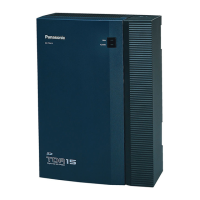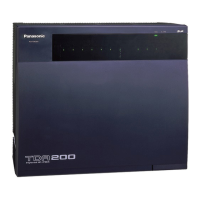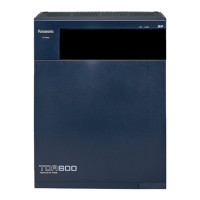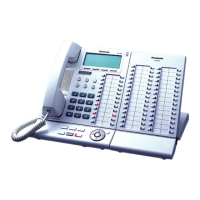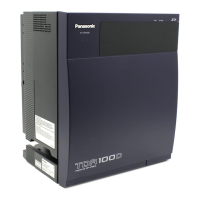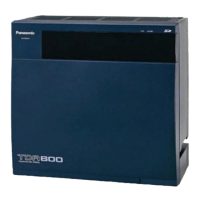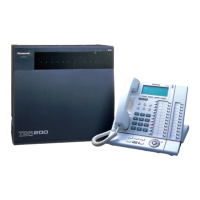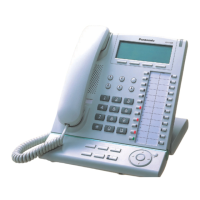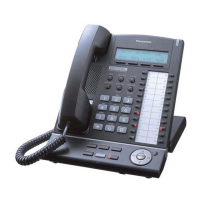1.1 Incoming Call Features
Feature Guide 31
• ICD Group The ICD Group Overflow destination assigned to the
group. (→ 1.2.2.6 Overflow Feature)
→ 2.9.10 [3-5-1] Incoming Call Distribution Group—
Group Settings—Overflow No Answer—Time out &
Manual Queue Redirection—Destination-Day, Lunch,
Break, Night
→ [625] Destination for Overflow Time Expiration
• VM Group (DTMF/DPT) The destination assigned to the first extension of the
VM group.
•DISA
*
If all DISA ports are busy when a call is made using
DISA, one of the following can be selected through
system programming:
• Disable: Busy tone is sent to the caller.
• Operator: The call will be redirected to the
operator.
• AA-0, AA-9: The call will be redirected to the
destination assigned to that AA number.
→ 2.11.3 [5-3-1] Voice Message—DISA System—
Option 1—DISA Intercept—Intercept when all DISA
ports are busy
• PS Ring Group
**
• External Pager (TAFAS)
**
• Analogue/ISDN Remote Maintenance
• Other PBX Extension (TIE with no PBX Code)
Not assignable (Intercept Routing is not available.)
*: Intercept Routing for DISA will redirect a call only if all of the Direct Inward System Access (DISA) ports
are busy. Once the call reaches the destination extension by using the DISA feature, the Intercept
Routing feature of the extension is used.
When the original destination is: The Available Intercept Destination is:
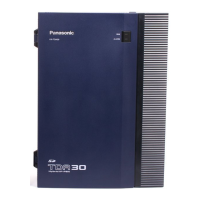
